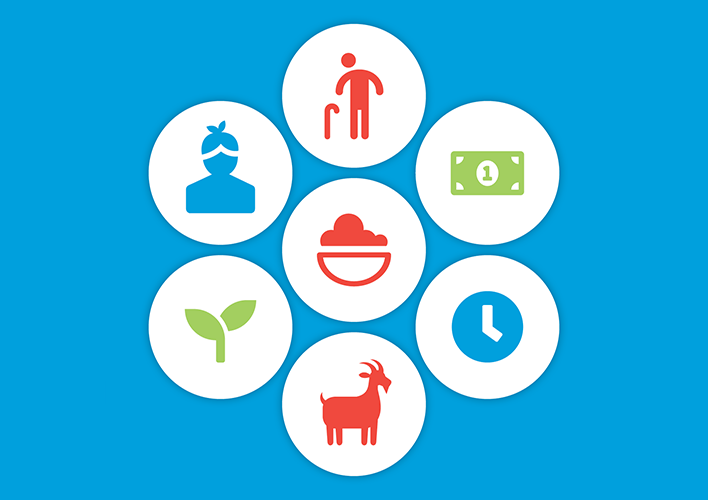Global hunger and a global pandemic

THE CONTINUED EFFECTS OF THE PANDEMIC MAKE IT HARDER FOR PEOPLE TO FEED THEIR FAMILIES
Putting food on the table is even harder for vulnerable people
If you are living in poverty, in a conflict zone, elderly or a person with a disability, you are at a greater risk of hunger.
Women face a growing burden
Care-giving for those who fall ill will most likely be your responsibility as a woman. With schools closed and children home it will be harder to work, so your earnings will drop increasing the likelihood that you will face hunger without additional family support.
Millions depend on a daily wage
When you cannot get out to earn wages to buy food and have no savings, you may quickly be thrown into crisis. If you have never owned a refrigerator or live in an area with unreliable electricity, you cannot use the money you have to stock up for more than a day or two.
Emergency food is more difficult to distribute
Food assistance programs are disrupted by restrictions on movement, transportation and group gatherings. 368 million children worldwide are no longer receiving a school meal because of school closures.
Farmers are having trouble getting crops to market
With the restrictions in your community, as a farmer you might not be able to move any crop surplus off your farm to sell. Seeds, tools and other inputs are harder to get and workers can’t or won’t travel to work.
People are already changing what or when they eat
Money is running out fast, so you’re eating less often and feeding your family cheaper food like maize or rice. They are less nutritious and you’re risking malnutrition for everyone, including the baby due in a few months, but at least your family has something to eat.
People are selling equipment or assets to feed their families
If restrictions go on much longer, you can’t earn income, have no savings and live in a country with no social safety net. You may need to sell valuable livestock or tools for food. It may take a few of years to recover without them, but you can’t think about that now.
Sources: Global Report on Food Crises – World Food Programme, April 2020.
The Impact of COVID-19 on Food Security and Nutrition, United Nations, June 2020.
Canadian Foodgrains Bank is a Charity Intelligence top ten impact charity. It is a partnership of 15 church based agencies working together to end global hunger. Working with locally based agencies in over thirty seven countries to meet emergency food needs as well as helping create long term solutions to hunger, Foodgrains Bank is on the front lines of responding to the food security issues that the pandemic exacerbated across the developing world.